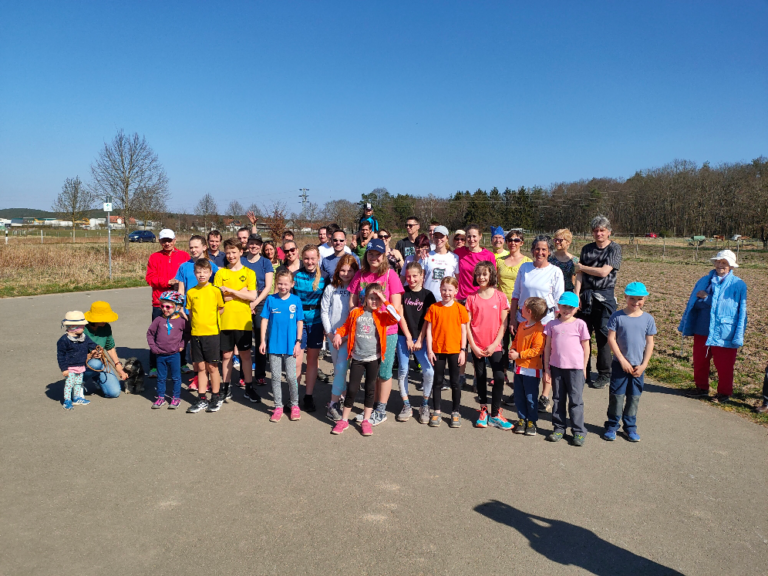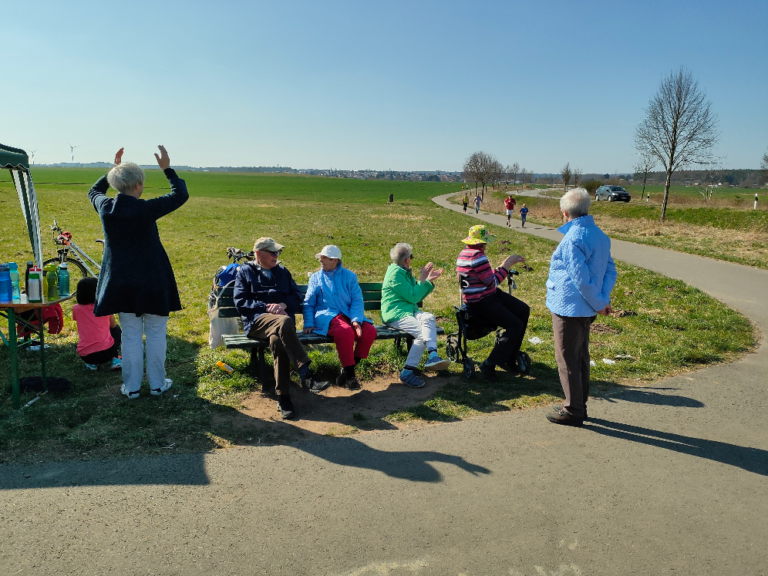12: Running to Share Clean Water
Germany
A Climate Pollinator story by Sierra Ross Richer
For two hours last March, 45 runners from the Mennonite Church of Enkenbach in Germany ran in loops to raise money for new wells in Benin.
The participants, including children, adults, retired folks and even one dog, completed as many kilometers as they could around designated loops in the allotted time.
“Beforehand the runners asked friends, family members (and) neighbors to become their sponsors,” said Patrick Schmidt, a member of the congregation who helped plan the event. “The sponsors promised to donate a certain amount per kilometer the runner would run within two hours.”
The participants covered a total of 475 kilometers and raised almost 9,000 euros ($9,600 US).
The fundraiser was the culmination of a 7-week “climate fast” the congregation took part in last year as part of a year-long creation care theme.
The congregation is generally very environmentally-conscious, said Dora Schmitd, Patrick’s wife and chairperson for the church. The congregation has invested in solar panels for energy, runs a second-hand clothing store and is involved in a food sharing program that intercepts discarded grocery store food before it goes to the dumpster and makes it available for those in need.
“(Environmental action) very much comes out of the cultural movement (in Germany),” Dora said. She emphasized that her church is just one of many taking action to address environmental issues.
The money from the fundraiser will be used by Mennonitisches Hilfswerk, Germany’s national Mennonite aid organization, to help build wells and water facilities in the West African country of Benin through the “Water 4 Aligoudu” project, a cooperation with La Casa Grande Benin.
According to Mennonitisches Hilfswerk, 3 out of 5 people in Benin don’t have access to clean drinking water. The Climate Knowledge Portal of the World Bank, reports that climate change is bringing more droughts and floods to the region as well as causing sea levels to rise on the Southern coast.
“It’s easy to sit here in comfortable Europe and say we’re doing what we can,” Dora said, “But we’re not being too negatively affected by (climate change).”
“We’re being called to see how our brothers and sisters in Christ around the world… are being very negatively affected by climate change… see how what we’re doing has an effect on people in (other places).”
Photos



